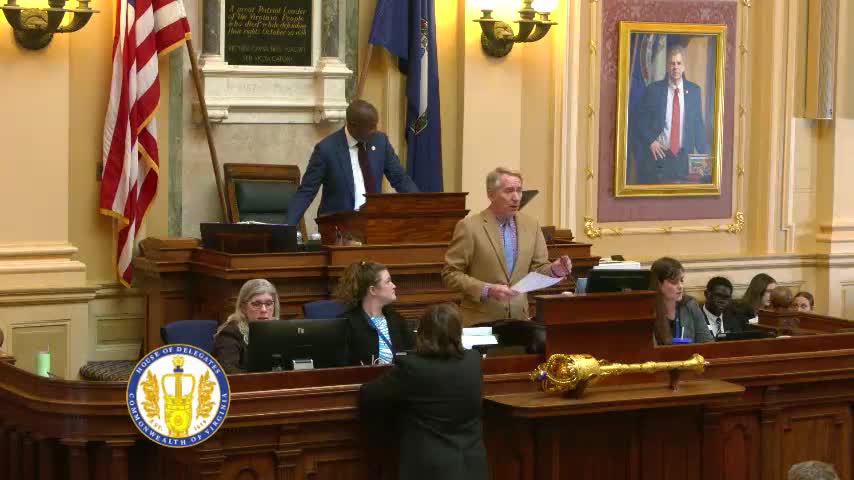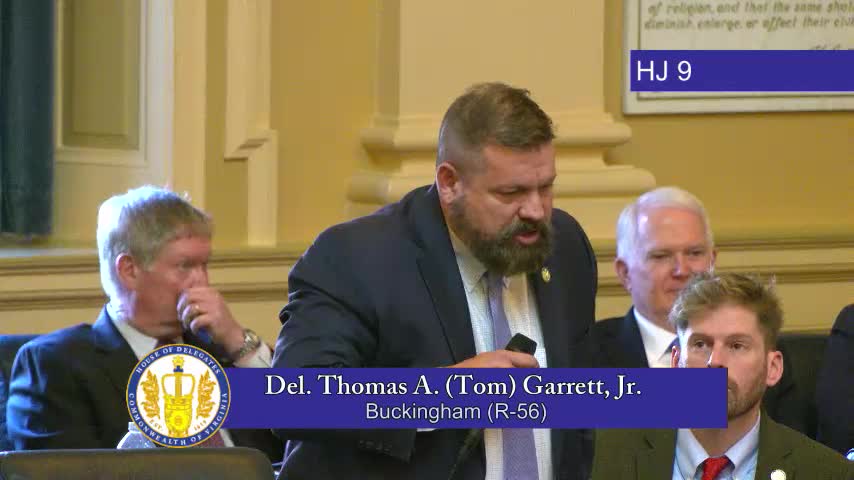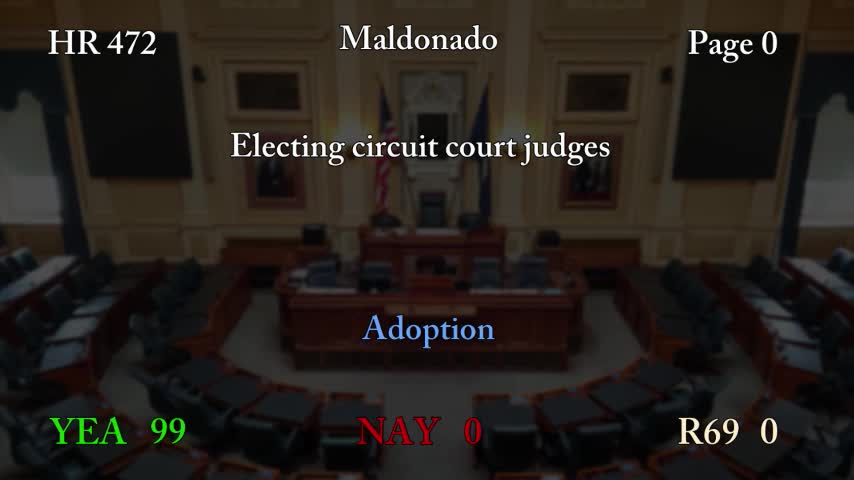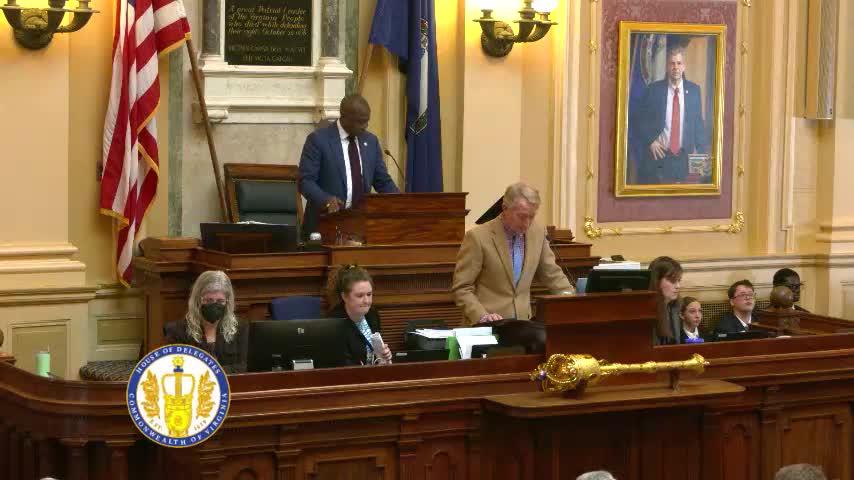Article not found
This article is no longer available. But don't worry—we've gathered other articles that discuss the same topic.

House Confirms Block Judicial Nominations, Elects Auditor; Joint Order Executed

House Votes to Remove Constitutional Language Banning Recognition of Same‑Sex Marriage

House Passes Amendment to Automatically Restore Voting Rights for People with Felony Convictions

